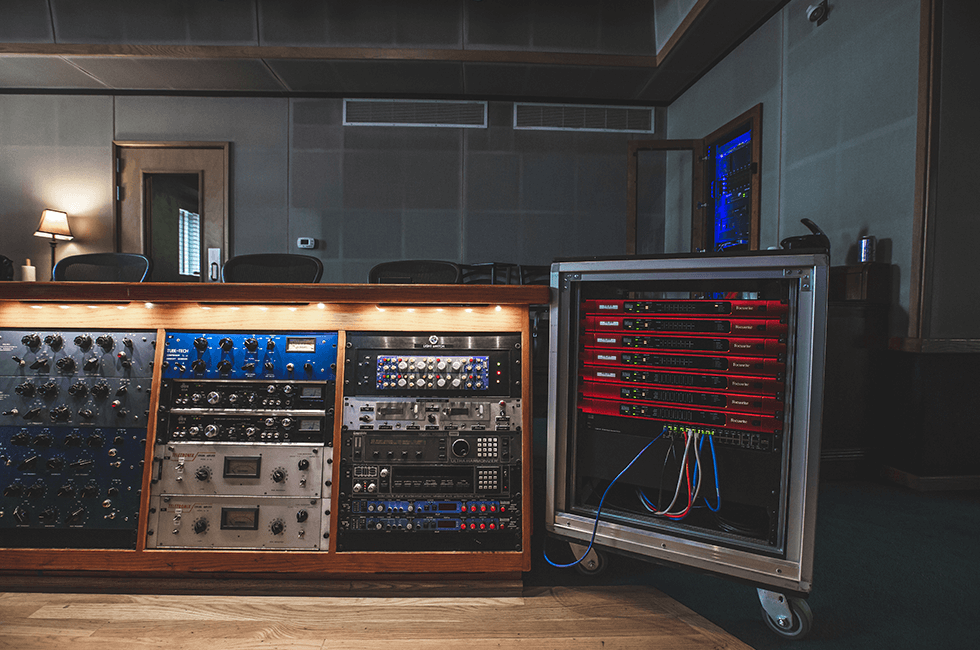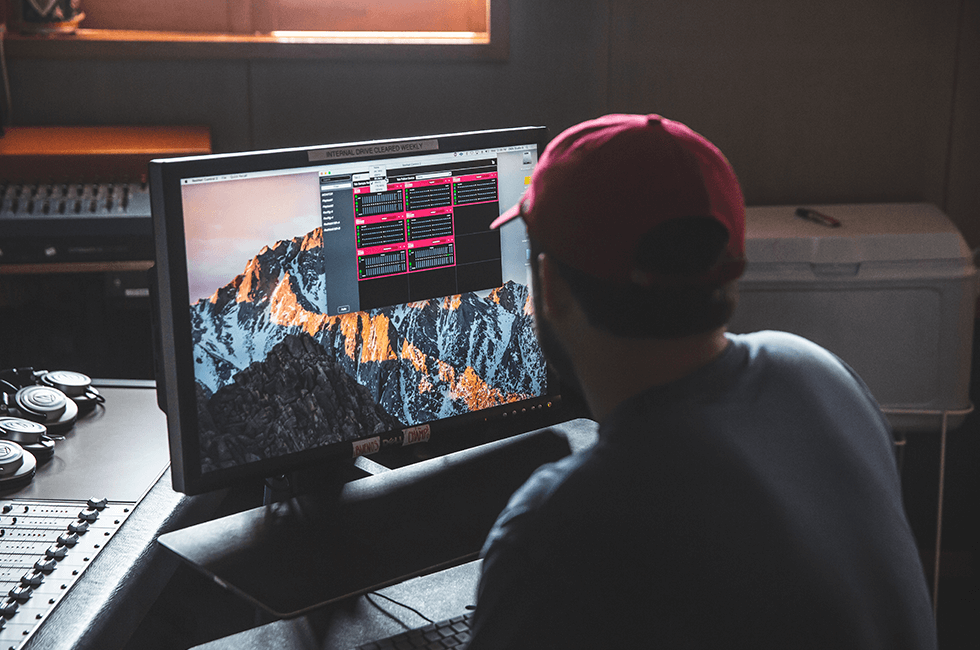RedNet Transforms Ocean Way Nashville’s Creative Potential
It's common for education establishments to have professional-level facilities that rival and sometimes exceed those of commercial operations. The intent is obvious: to provide the best-possible learning experience so that students are prepared for whatever industry throws their way. Belmont University in Nashville, USA, is one such school. Their focus on composition for film as well as music recording and audio post-production necessitates several great-sounding recording studios, spaces for capturing foley and ADR, and large theaters for teaching in Dolby Atmos environments. But what is less common is for a school to have in its portfolio a world-class, professional recording facility, and for the line between school operations and industry to be so transparent.
The symbiotic relationship between Belmont University and Ocean Way Nashville lays a pathway for students and staff to travel freely between the sometimes disconnected worlds of education and commercial production. Students on Belmont's Audio Engineering Technology program are allocated time in the Ocean Way Nashville recording facilities just as they can book a session in other recording facilities on campus. The difference here is that, unlike generic school buildings, Ocean Way Nashville is the birthplace of countless classic albums, hundreds of movie soundtracks, and a huge number of video game scores. Ocean Way Nashville lies a short stroll from the Belmont University campus, at the heart of Music Row, the city's cluster of music and entertainment companies.

Technical Challenges
While the benefits of this commercial/education duality are abundant (students get an unmatched learning experience; the school has access to a fertile pool of keen assistants, etc), the twin-focus has posed some challenges. As Director of Studio Operations, Pat McMakin has been tasked with overcoming these hurdles. As a veteran of Music Row and someone who has been in studios his whole life, Pat has a progressive and collaborative approach to getting things done, working smarter not harder to achieve his objectives.
One such challenge was to cater to the needs of a client with very specific technical requests. Ron Romano, Technology Specialist at the Curb College of Entertainment and Music Business, whose remit also includes Ocean Way Nashville, recalls the scenario. “We had a mixer come to town that wanted to be able to mix a film in 5.1 in Studio B." The challenge seems simple on the surface, but in practice it has several facets. Firstly, Studio B is configured as a stereo room, so transforming it into a 5.1 surround environment was the first order of business for the team. “They also wanted the console to be live as a fader and mute group for physical mixing," adds Ron.
The Neve VRP96 in question is described by Ocean Way as “hot-rodded" with limiting and compression on each of the 96 input channels and “every possible option and sonic upgrade". The solution meant duplicating I/O capabilities and providing enough connections so that a Pro Tools | HD recorder could capture the discrete channels independently of the console. A third aspect to the scenario was that the mix would not be completed in one block. (It's common for film projects to book a room for several weeks to complete a mix from start to finish.) In this instance, the production team would come in for a day or two here and there, so the stereo-to-surround conversion would have to be repeated several times, and would need to be done speedily in order to minimise downtime. “With Ocean Way Nashville being a commercial facility that's constantly busy with cutting records and film scores, we just don't have time to be down for very long," says Ron.

The RedNet Solution
“Amongst the ideas," Ron recalls, “was that RedNet was going to solve this problem." Ron's track record with using audio-over-IP as a cutting edge problem-solver is evident in the campus-wide Dante system implemented at Belmont's other studios and facilities. For the Studio B system, Ron put together a rolling rack comprising RedNet HD32R Pro Tools | HD Bridges to interface between Dante and the playback and record Pro Tools environments. RedNet A16R analogue I/Os were used to make the line-level connections with the existing studio infrastructure, via EDAC multi-pin connectors, thus making the Neve console an extension of the Dante network.
Pat McMakin summarises the system, “the RedNet equipment gave us all the inputs and outputs and D-D that we needed to make that project work. Everything ported the way it was supposed to, and everything sounded the way we wanted it to sound." Importantly, the changeover process was remarkably simple. “Having the RedNet gear with Audio-over-IP, it's just Ethernet connections, plug-and-play, and the units remember the patching."
With the project complete and the proof of concept tested, RedNet at Ocean Way Nashville will not be a one-hit-wonder. In a gradual adoption of Dante site-wide, the studio uses several AM2 units around the site, and the team have discussed connecting the studio to the already Dante-enabled Belmont University campus via a fibre-optic link. The goal would be to access audio anywhere on the Belmont site, so the University's arena concerts could be recorded and mixed live in Ocean Way's studios, for example, and students could experience recording a pro orchestra using audio subscriptions from Ocean Way's stunning Studio A live room. In conclusion, the road is long for RedNet in Nashville, and Belmont University already have an impressive head-start.

Words & Pictures: Chris Mayes-Wright
